Can diabetics eat oranges?
Thanks for the invite.
Diabetes can certainly eat oranges, in fact, most of the fruits sugar lovers eat are no problem, diabetic patients do not need to deliberately avoid fruit intake, as long as a one-time intake and all-day intake control amount is no problem. In fact, in fact, there is no sugar friends must not eat food, as long as you can find ways to control the relative stability of blood sugar, in fact, there is no need to say absolutely can not eat a certain kind of food, for example, when studying in Japan, but also saw the development of diabetic recipes for diabetic patients there is a 100g~150g of low-sugar cake, see the cake, a lot of sugar friends should be afraid of it, but as long as the scientific control of the diet, choose the appropriate way to stabilize blood sugar, sugar, sugar, sugar, sugar, sugar, sugar, sugar, sugar, sugar. But as long as the scientific control of diet, choose the appropriate way to stabilize blood glucose, sugar lovers can have a lot of choices; in addition, each person's physical, insulin secretion, insulin resistance degree are different, so according to their own situation to choose food, maybe this food for others to rise sugar fast, but for their own okay, it is best not to be people, others do not dare to eat what they do not dare to eat what others eat what they eat also follow.
Generally speaking, we will check the glycemic index of the food in the most intuitive way to determine whether the food is suitable for sugar lovers to eat, the glycemic index is a measure of the speed of the rise of blood glucose per unit of time of the food, generally speaking, the food higher than 55 glycemic index belongs to the middle-high glycemic index food, sugar lovers are best not to consume too much, and higher than 70 belongs to the high-glycemic fruits, sugar lovers must be strictly control the amount of. The glycemic index of tangerine is only about 30, and does not belong to the high glycemic index of fruits. Tangerine tastes sweeter because the fructose content in tangerine is higher, and fructose is a kind of sugar that does not raise blood sugar much, but its sweetness is nearly 50 times that of glucose. The total sugar content in oranges, 100g is also only nearly 9g or so carbohydrates, does not belong to the high sugar content of fruit, so although oranges are sweet, but it is still a suitable fruit for sugar lovers to eat.
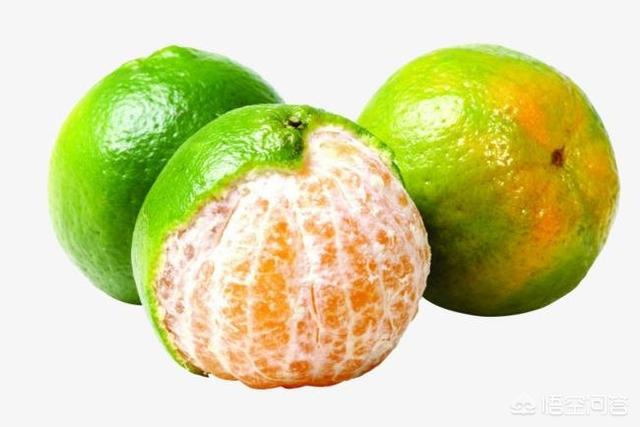
Oranges are also rich in beneficial ingredients, oranges are rich in a variety of minerals, such as calcium content is quite prominent, oranges are rich in high potassium, 100g of oranges can provide about 170mg of potassium, but it is not high in sodium content, which helps to stabilize the extravascular osmotic pressure, diuretic and diaphoretic, and it is also a suitable fruit for patients with high blood pressure. Oranges also contain a certain amount of phosphorus, magnesium, and provide a small amount of iron, manganese, zinc, copper and other components. Oranges are rich in vitamin C, vitamin A and vitamin B, as well as a small amount of vitamin E components. It is low in fat and calories, and contains a good amount of dietary fiber, which makes it a delicious fruit for young and old alike. Tangerine petals with the unique orange Luo component, this component is a Chinese medicine, helps to relieve cough and phlegm, has the effect of clearing heat, but also a strong source of dietary fiber. It is best to eat oranges without giving up the tangerine complex, which is also a valuable and beneficial ingredient.

For sugar lovers, it is recommended to eat oranges at one time is best not to exceed 200g, daily fruit intake in 200~350g is appropriate, is not suitable for more food. Eat fruit is best to eat fresh, and do not recommend juicing or eating dried fruit, after juicing fruit loss of large amounts of dietary fiber, sugar absorption faster, and volume concentration, a cup of juice needs more fruit to juice, a cup of juice blood sugar is bound to soar; dried fruit water emanation, elevated glycemic load, the food is also more prone to elevated blood glucose, and dried fruit is not at all topped with hunger, ate a still want to eat one, it is easy to eat more, the impact on blood sugar will also be greater. It is easy to eat more, the impact on blood sugar will also be greater.
Can diabetics eat oranges?
We should all know that diabetics need to pay attention to a lot of aspects of their lives. In addition to daily living, there is a lot to pay attention to in terms of diet. Some food for the general public can eat, and often eat more will not have any bad effects, but on the other hand for diabetics is not the same.
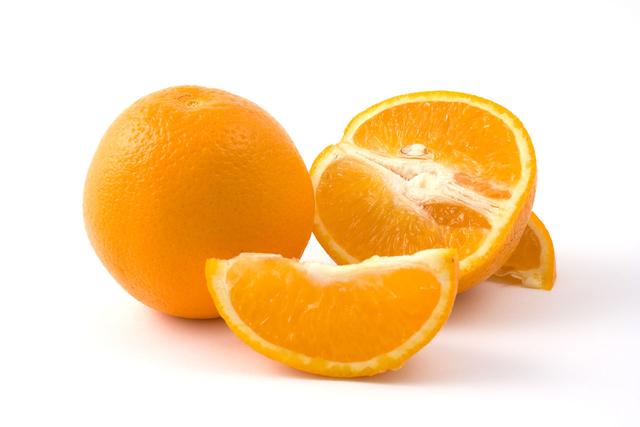
A lot of food, diabetics can not eat, or can not eat more, once eat more will aggravate their condition. But often many times, diabetic patients themselves are not pay attention to, or do not know, like the above mentioned oranges, then, diabetics can eat oranges? Here to talk about this issue.
A small amount is possible, diabetic patients eating fruit to comply with the following principles: 1, in the blood sugar control is not good, according to the can not eat fruit, blood sugar control is ideal when the fruit can be moderate; 2, eating fruit time should be between meals; 3, choose the glycemic index of the small fruits, such as tomatoes, cucumbers, strawberries, plums, watermelon, melon, cherries, dragon fruit, oranges, pears, pineapple, etc., when all should be eaten in moderation, should not be too much. Should not be too much. But pomegranates, bananas, dates, red fruits, etc., diabetics should not eat.
The sugar content of oranges is 12.%. According to the analysis of the Central Institute of Health, citrus contains 12g of sugar per 100g of edible portion. 3 oranges a day will satisfy a person's need for vitamin C for a day. If consumed in excess, they are prone to cause urinary and kidney stones.
Some studies have shown that people who eat oranges have lower rates of coronary heart disease, high blood pressure, diabetes, and gout.
Oranges are rich in vitamin C and citric acid, the former has a cosmetic effect and the latter has the effect of eliminating fatigue. If you eat the inside of the orange with the thin skin, in addition to vitamin C, you can also consume dietary fiber - pectin, which can promote laxative, and can lower cholesterol.
Orange peel glycosides can strengthen the toughness of capillaries, lower blood pressure, expand the heart's tubular arteries, so it can be said that oranges are food to prevent coronary heart disease and atherosclerosis. The University of Florida researchers confirmed. We usually finish eating oranges, then casually throw the skin. In fact, what you throw is a good herb. The fresh orange peel cut into thin strips, ventilated and dried, three years later can be used in medicine for Chen Pi.
In the above introduction we know, for diabetics, can eat oranges, but only need to eat a small amount, because if eaten too much, it will have a bad effect on their condition. In addition, for diabetic patients, in the blood sugar is not under control is not allowed to eat said, I hope you notice this.

First of all, it is clear that there is no food that a diabetic cannot eat, and of course oranges are okay to eat.
So what time is better to eat oranges? Oranges are a kind of fruit, so diabetic patients eating fruit need to blood sugar basic standard, basic standard requirements is fasting ≦ 7mmol / L, after meals ≦ 10mmol / L. A day does not exceed 200 grams. That is the equivalent of a fist-sized orange. Eat between meals.

Oranges are rich in vitamin C, can promote the body, collagen synthesis, so that the skin elasticity, fine blood vessel wall elasticity increased.
However, oranges are rich in carotenoids, if you eat too much at one time, or eat too much in a short period of time, the liver can not be completely decomposed, which will lead to a high concentration of carotenoids in the blood, accumulating in the subcutaneous fat, thus causing yellowing of the skin. But don't worry, this kind of yellowing as long as you stop consuming a lot of orange-like, carotene-containing foods, about two weeks will fade away, no effect on the body. So although the orange is good, can not eat oh!

Author Resume: Li Shi National Level 2 Dietitian Wang Xingguo Special Training Class 5 Students Diabetes Education Specialist Senior Nursery Nurse Nurse
Benefits of Oranges
Orange contains a variety of vitamins, minerals, fiber and carotene, has a good nutritional value, but also very convenient to eat, all very popular.
So how do diabetics eat oranges?
Oranges contain 9.7 grams of carbohydrates per 100 grams (also known as "sugar" in the mouth of sugar lovers), the carbohydrate content is not low, an orange contains about 15 grams of carbohydrates, can raise blood sugar about 3mmol / L, for blood sugar control is not good for sugar lovers is also a small threat.
Eat oranges according to your blood sugar
Today, I'm going to show you how to add oranges to your meal based on your blood sugar:
(1) For blood glucose below 3.9 mmol/L, it is recommended to eat foods with rapid glucose increase: sugar cubes, fruit juices, honey water, etc.. It is not recommended to use oranges to correct hypoglycemia, because the glucose rise is slower than these foods such as sugar cubes, fruit juices, honey, etc., the duration of hypoglycemia will be relatively longer and the damage caused will be relatively greater.
Once your blood sugar has risen to within the normal range, add oranges to your meal according to the following regimen.
(2) For blood sugar of 4-5.6 mmol/L, it is recommended to add 1 orange.
(3) For blood sugar of 5.7-7 mmol/L, it is recommended to add half an orange.
(4) If the blood sugar is higher than 7 mmol/L, it is not recommended to add a meal.
If you have any questions, you can leave them in the comment section and I'll reply when I see them~
The above answer is provided by Ms. Song Mingyue, a registered dietitian of MicroSugar
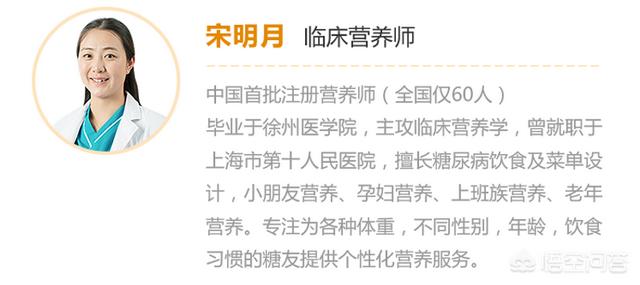
Follow us on Microsugar - Smile in the Face of Diabetes
Can diabetics eat oranges? I am not an expert scholar, a physician or a patient, and I am not qualified to take a position so as not to mislead others. However, there are many people around me who suffer from diabetes, therefore, it also draws my attention especially. According to the theory of Chinese medicine to cure the disease, I also especially need knowledge in this area, in order to save for a rainy day! Here is just a little personal experience, do not take to practice.
As you know, diabetes is a disease of glucose metabolism disorder caused by endocrine disorders, defective pancreatic islet function, and decreased insulin quality. Its pathology is characterized by elevated blood glucose, which in the long run can lead to a variety of serious complications.
The principle of glycemic control for diabetics is that they should not be held to the standard of a healthy person. In other words, the blood glucose standard before and after meals should be two to three points higher than that of normal people. Over-emphasis on meeting the standard according to normal people's standards will result in malnutrition and a decline in the patient's physical fitness, which will eventually lead to hypoglycemia. Hypoglycemia can be rapidly fatal, while higher blood sugar is a chronic, non-fatal disease.
The fundamental method of treating diabetes lies in improving the self-repairing capacity of one's own pancreatic function. At this point, experts and scholars give out pessimistic answers. I have an immature idea: there is a qigong therapy in traditional Chinese medicine, which can promote the body's self-repair and recuperation through gong methods, and practicing qigong under the guidance of someone is beneficial and harmless. I do not encourage others to eat crabs, but I just want to say that someone has to eat crabs first in the birth of scientific knowledge.
Back to the main topic, can diabetics eat oranges. It is recommended to eat any food to make a detailed record, after the meal regularly measured blood glucose, and then, they know what they ate, how much blood sugar after eating how much, the heart has a bottom, do not listen to people randomly guessing nonsense.
My advice is that a diabetic should not refrain from eating any food, but should not eat any food in excess! It must be in the word quantity, in other words, you can't eat this or that, the body is in need of all kinds of nutrients, but it is not replenished. It will then go from one extreme to the other.
Into the fall, it's time to eat oranges, oranges belong to citrus fruits, it is large, juicy, sweet and sour, no need to peel and wash, peeled to eat, people love, few people do not like, "Dietary Guidelines for Chinese Residents" (2016 version) recommended that you should eat 200 to 350 grams of fresh fruit every day, 200 grams is roughly equivalent to the size of an adult's fist of oranges. In terms of nutrition, oranges are rich in vitamin C, each 100 grams of oranges contain about 20 to 35 mg of vitamin C, much higher than common fruits such as apples and pears, is a good source of vitamin C in the autumn and winter seasons, in addition, oranges are also rich in potassium, carotenoids, pectin, cellulose, organic acids, flavonoids and other nutrients, with a lot of health benefits.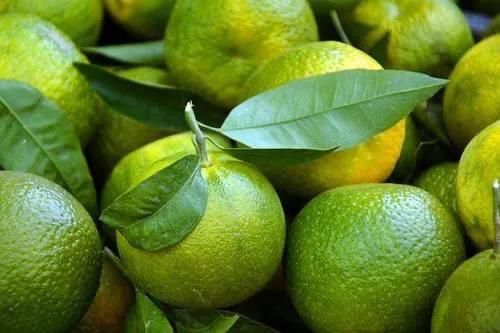
Diabetic patients should choose fruits with high water content and low sugar content. Common fruits such as strawberries, apricots, papayas, cherries, pears and peaches are relatively low in sugar content, which can be prioritized for diabetic patients. Every 100g of oranges contains about 11g of carbohydrates, which can be consumed in moderation by diabetic patients. In addition, diabetic patients should also refer to two indicators when choosing fruits, i.e. Glycemic Index (GI) and Glycemic Load (GL), GI is an indicator for evaluating the response of postprandial blood glucose caused by food, and compared with low GI food, high GI food increases postprandial blood glucose faster and more significantly, tangerine GI is 43, which is less than 55, and it is a low glycemic index food.GL is the amount of designated food to elevate the blood glucose GL is the ability of a specified amount of food to raise blood glucose, the higher the GL, the easier it is to cause postprandial blood glucose elevation of food, tangerine GL is 4.95, significantly higher than strawberries, apricots, cherries, grapefruit, peaches, pears and other fruits, it is recommended that diabetic patients eat a moderate amount of food, not more than 350 grams per day, patients with unstable blood glucose or high blood glucose is recommended to not eat for the time being.

Fruits contain a variety of essential nutrients, for diabetic patients, in order to maintain nutritional balance, you can eat fruits, the Chinese Nutrition Society formulated and released the "Chinese Diabetes Dietary Guidelines" (2017) recommended that diabetic patients should eat more vegetables and eat fruits in moderation. Oranges are rich in dietary fiber, which can't be absorbed in the intestinal tract, helping to delay the digestion and absorption of carbohydrates, reduce postprandial glucose response, and stabilize postprandial blood glucose, in addition, oranges are rich in potassium, carotenoids, vitamin C, and flavonoids, which can help to maintain cardiovascular health, prevent obesity, and delay the onset and progression of vascular complications in diabetes, so diabetic patients should eat daily A medium-sized orange is appropriate, recommended to eat between meals, more conducive to blood sugar stabilization and prevention of hypoglycemia.

In short, oranges are common fruits in the fall and winter seasons, delicious and nutritious, rich in organic acids, vitamin C, potassium, dietary fiber, carotenoids and flavonoids and other nutrients, dietary fiber helps to reduce postprandial glucose response, potassium, carotenoids, vitamin C and flavonoids help to protect the cardiovascular system, preventing obesity, and reducing the risk of vascular complications in diabetes mellitus. Orange contains medium sugar, belongs to the low GI food, but the GL is significantly higher than strawberries, pears, apricots, grapefruit, peaches and other fruits, it is recommended that diabetic patients eat in moderation, blood glucose up to the standard of diabetic patients can eat a medium-sized orange every day, it is recommended that you eat between meals, which is conducive to the stabilization of blood glucose and the prevention of hypoglycemia.
Thanks for the invitation, diabetics can eat oranges. Oranges are rich in vitamin C, citric acid, pectin, vitamin P, lutein, orange peel glycosides and other nutrients. Among them, vitamin C and citric acid can assist in regulating blood sugar levels; vitamin P and lutein can prevent retinopathy; pectin can promote defecation; orange peel glycosides can enhance the toughness of the capillaries, help regulate blood pressure, and prevent cardiovascular diseases.
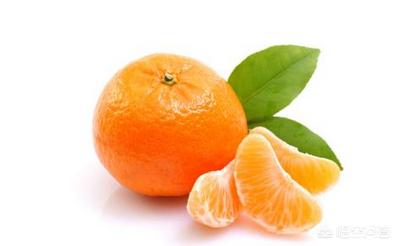
Sugar lovers should be aware of these things when eating oranges:
1. Do not remove the layer of white orange complex on the surface of the orange, because this substance can help maintain the elasticity and density of blood vessels, reduce the brittleness and permeability of the blood vessel wall, and prevent vascular lesions.
2. Do not eat oranges when taking medication, because the acid in oranges can affect the efficacy of drugs, especially sulfonamides and potassium supplements.
3. Oranges should not be eaten with milk, because oranges inside the acid and vitamin C and other substances, will react with the proteins in the milk, coagulation into a block to affect the absorption, but also cause bloating and diarrhea and other discomforts.
4. Oranges can not eat more than one time, one will raise blood sugar, the second will cause fire, mouth and tongue sores, sore throat, constipation and other symptoms. Especially the yin deficiency and yang bloomers, it is not advisable to eat more oranges.
If you found this answer useful, then give it a like! Welcome to SugarManHealth~
The difference between diabetics and healthy people lies in the fact that the glucose level in their blood is permanently higher than that of healthy people, so the general principle of diet for diabetics is that the food they eat will have as little effect on the glucose level in their blood as possible after digestion and absorption. Therefore, no matter eating staple food, vegetables, fruits, or meat, eggs, dairy need to follow this principle. Tangerines have less impact on blood glucose levels after digestion and absorption, so diabetics can eat tangerines. However, if you don't control the amount of oranges consumed, the glucose level in the blood will be increased significantly, which will increase the burden of insulin secretion by pancreatic β-cells of diabetic patients and promote the damage of high blood glucose to the blood vessels and cells of the whole body.
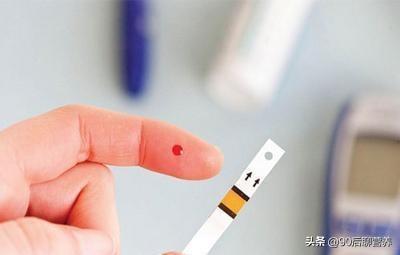
First, what are the principles of eating fruits for diabetics
Friends around me often ask me can diabetics eat fruit? Which fruits can and cannot be eaten? In fact, such questions can never be answered. Because there is no principle of teaching diabetics to eat fruits, today to share with you the principle of eating fruits for diabetics, after encountering the above problem can be determined by themselves.
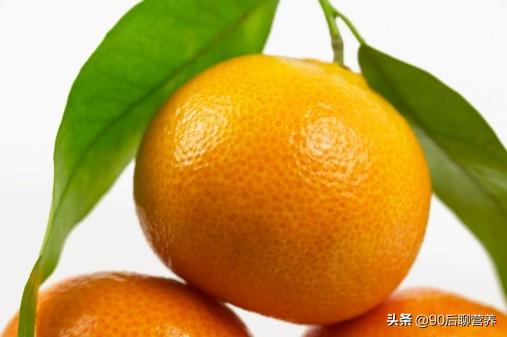
(1) Low glycemic index fruits
Glycemic Index (GI) is the degree of glucose spike in the blood after eating a certain food through digestion and absorption. Low glycemic index fruit is to eat the fruit after digestion and absorption, the blood glucose spike is relatively slow, so suitable for diabetics to eat. Therefore, the first principle of eating fruits for diabetics is that low glycemic index (GI <55) fruits can be eaten, and oranges belong to the low glycemic index fruits, which has a GI value of 43. In addition, such as apples, peaches, oranges, strawberries, dragon fruits, grapefruit, plums, cherries, grapes, pears and so on belong to the low glycemic index fruits, while watermelon, cantaloupe, Baba ganoush, pineapple, mangos and so on, GI ≥ 55, so it is better for diabetics not to consume them.
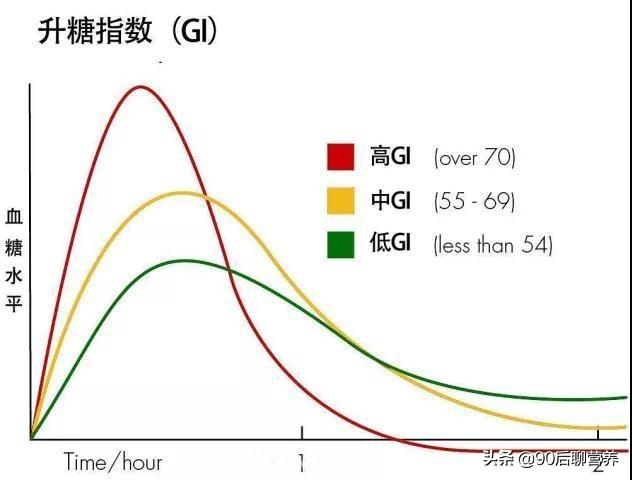
(2) Control of fruit intake
We know that quantitative changes will cause qualitative changes, although the low glycemic index fruit glycemic ability is weak, but if a short period of time a large number of food, it will still cause a short period of time the rapid rise in blood sugar. Therefore, diabetics should not eat more than 100 grams of oranges at a time.
Second, what are the nutrients of oranges
In order to uncover the truth about whether diabetics can eat oranges, it is necessary to analyze the nutrients it contains, and clarify whether diabetics can eat oranges from a nutritional point of view.
(1)Energy, capacity nutrients
Calculated per 100 grams of edible part of the orange, the nutrients it contains are: 86.9 grams of water, 51kcal of energy, 0.7 grams of protein, 0.2 grams of fat, 11.9 grams of carbohydrates, and 0.4 grams of insoluble fiber.
(2) Vitamins
Each 100 grams of edible part of the orange contains vitamins: total vitamin A 148 micrograms, carotene 890 micrograms, vitamin B1 (thiamine) 0.08 mg, vitamin B2 (riboflavin) 0.04 mg, niacin 0.4 mg, vitamin C 28 mg, vitamin E 0.92 mg.

(3) Minerals
Oranges contain minerals per 100 grams of edible parts: calcium 35 mg, phosphorus 18 mg, potassium 154 mg, sodium 1.4 mg, magnesium 11 mg, iron 0.2 mg, zinc 0.08 mg, selenium 0.3 micrograms, copper 0.04 mg, manganese 0.14 mg.
Visible 100 grams of edible part of the orange 86.9 grams are water, providing energy is also very low (about 51kcal), and contains rich vitamins and minerals, so from a nutritional point of view further evidence that diabetics can eat oranges.
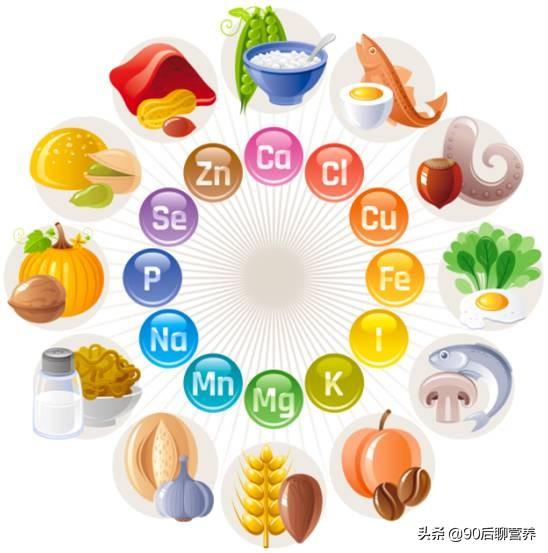
Third, what are the benefits of eating fruits for diabetics
(1) Increase satiety and reduce energy intake
When a diabetic eats a little fruit before a meal, the fruit is very low in energy due to its high water content and volume, and contains a certain amount of pectin, which increases satiety. This property reduces the intake of staple foods, etc. and slows the release of glucose in diabetics, which is positive for energy control and easing postprandial blood glucose levels.

(2) Supplementation of some vitamins, minerals, dietary fiber
Fruits are rich in vitamins, minerals, dietary fiber and plant compounds. They are indispensable raw materials for the metabolism of substances and energy in the body. Such as carbohydrates, fats, proteins, decomposition and synthesis of a variety of coenzymes required by vitamins and minerals involved in the composition.

(3) Regulates mood, promotes defecation and maintains intestinal flora balance
Eating fruit can promote saliva and gastric juice secretion, promote gastrointestinal motility, especially fruit pectin can absorb water expansion stimulate intestinal wall cells to promote defecation, at the same time, pectin can also promote the growth and reproduction of intestinal beneficial bacteria, to maintain the balance of intestinal flora has a very important role. The intestinal tract is smooth and people's mood is also good.

In conclusion, diabetics can eat oranges, but the amount needs to be strictly controlled. For other fruits, diabetics always keep the principle of not letting their blood sugar levels fluctuate too much as the basis, and are perfectly capable of properly enjoying the delicious fruits that nature has bestowed upon mankind. In addition, diabetics must be strict with themselves and maintain a good lifestyle to slow down the occurrence and development of diabetes complications.
Can eat, for diabetics can eat fruit, in fact, as long as the state of blood glucose control is stable, most of the fruit can be eaten, for example, try to choose some of the low sugar content, low glycemic index of the fruit can be, the main thing is that each time you eat the amount of do not be too large, know how to control the amount of food and choose the time to be able to.

Oranges, and citrus and grapefruit are citrus fruits, and there are more varieties of oranges, such as Fuchsia, kumquat, rutabaga, honeydew orange, three lakes red orange, small leaf orange, early orange, and so on. In a nutshell. No matter which kind of orange, their sugar content is basically in 8.8-13.7g /100g , small-leaf orange lowest in 8.8g /100g , kumquat highest in 13.7g /100g , but all belong to the low and medium sugar content. The GI index of tangerine (mandarin) is 43, which is a low GI food (below 55).

Oranges, rich in carotenoids as well as vitamin C and calcium, have a strong antioxidant effect, and it is beneficial for diabetics to supplement with antioxidant vitamins and micronutrients, such as vitamin C and vitamin E i.e. beta-carotene.
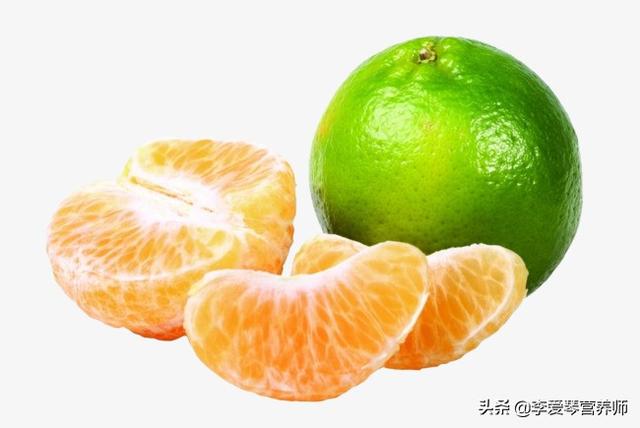
So in summary, oranges are a fruit that diabetics can eat. Remember to eat the fruit, do not let go of the hard to eat, eat a medium-sized orange every day can be, can be placed in between meals to eat. Green oranges are better.
Tangerines, there are; mandarins, oranges, mandarins, kumquats, etc. Diabetics can eat them, but they should not be eaten in excess. Tangerine, meat; slightly warm in nature, contains a large amount of vitamin C and glucose as modern science says. It can nourish, moisturize the lungs, dissolve phlegm, move the qi, and produce fluids. Its rind and endocarp between the vascular bundles group, called: orange complex, the nature of the flat, can moisten the lungs, phlegm, blood, qi, etc.. Can be eaten, beneficial, do not discard. Because; orange is slightly warm, is a warm food. And diabetes, generally belongs to the Yin deficiency disease. Therefore, oranges generally do not eat more, to eat less for good.
This question and answer are from the site users, does not represent the position of the site, such as infringement, please contact the administrator to delete.